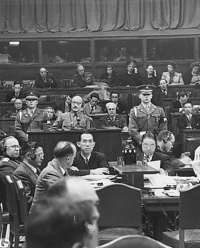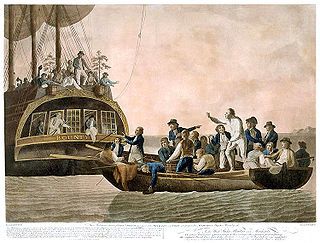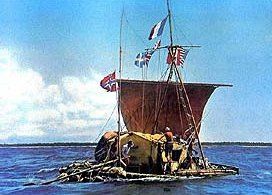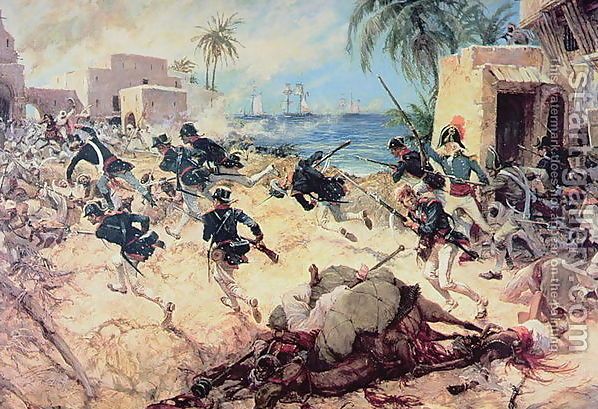“Punting the Pundits” is an Open Thread. It is a selection of editorials and opinions from around the news medium and the internet blogs. The intent is to provide a forum for your reactions and opinions, not just to the opinions presented, but to what ever you find important.
Thanks to ek hornbeck, click on the link and you can access all the past “Punting the Pundits”.
Paul Krugman: Wasting Our Minds
In Spain, the unemployment rate among workers under 25 is more than 50 percent. In Ireland almost a third of the young are unemployed. Here in America, youth unemployment is “only” 16.5 percent, which is still terrible – but things could be worse.
And sure enough, many politicians are doing all they can to guarantee that things will, in fact, get worse. We’ve been hearing a lot about the war on women, which is real enough. But there’s also a war on the young, which is just as real even if it’s better disguised. And it’s doing immense harm, not just to the young, but to the nation’s future.
New York Times Editorial: The Economy Downshifts
The slow start for the economy in 2012 – an annual rate of 2.2 percent in the first three months of the year – is evidence that the recovery is too weak to push joblessness much lower than its current 8.2 percent, and too fragile to withstand the kinds of budget cuts Congressional Republicans are proposing.
First-quarter growth was not far off the recent average pace and conditions are certainly worse elsewhere, with many European nations in recession. But that’s false comfort. To make up the damage the Great Recession did to jobs, income, wealth and confidence, the economy needs consistent above-average growth. Europe’s problems will only exacerbate America’s own, by shaving growth from exports or, in a worst case, by destabilizing banks that are linked to the European financial system.
PARIS — There is a celebrated observation of the 1920s Italian radical, Antonio Gramsci, that perfectly fits the economic paralysis of today’s Europe: “The crisis consists precisely in the fact that the old is dying and the new cannot be born; in this interregnum a great variety of morbid symptoms appear.”
A week before the final round of the French presidential election, which is very likely to propel the Socialist, Francois Hollande, to the Elysee Palace, it is hard to see how even a left government in a single European nation can defy the austerity consensus.
Mike Lux: Banking Wars
The banking wars are getting more and more interesting. The legal and political implications are bigger than most people understand, and the players involved need to be very careful with the loaded guns they are gesturing with or they might shoot themselves in the foot (or perhaps an even more vulnerable body part.)
Underlying the entire drama is this fundamental subtext: the American people are fundamentally (and correctly) cynical about how the big bankers always seem to get away with whatever they want to get away with. Bailing out the bankers with no strings attached in order to save an economy that didn’t seem to most people to be very well saved, then watching the banks get record profits and bonuses the very next year while the rest of the economy was in the toilet didn’t engender much good cheer about whether justice had been done. Neither have the tons of books, news articles, and blog posts about the things these bankers were able to get away with in the course of the buildup to the crisis and the things that have happened since.
Robert Reich: The GOP’s Death Wish: Why Republicans Can’t Stop Pissing Off Hispanics, Women, and Young People
What are the three demographic groups whose electoral impact is growing fastest? Hispanics, women, and young people. Who are Republicans pissing off the most? Latinos, women, and young people.
It’s almost as if the GOP can’t help itself.
Start with Hispanic voters, whose electoral heft keeps growing as they comprise an ever-larger portion of the electorate. Hispanics now favor President Obama over Romney by more than two to one, according to a recent Pew poll. [..]
How can a political party be so dumb as to piss off Hispanics, women, and young people? Because the core of its base is middle-aged white men — and it doesn’t seem to know how to satisfy its base without at the same time turning off everyone who’s not white, male, and middle-aged.
E. J. Dionne, Jr.: Connecticut’s Death Penalty Message
GREENWICH, Conn.-Since the 2010 elections, the activism of newly empowered conservative and Republican state legislatures has gained national attention with their wars on public employee unions, additional restrictions on abortion and new barriers to voting.
Against this backdrop, the little state of Connecticut has loomed as a large progressive exception. Last year, it became the first state to require employers to grant paid sick leave. It also enacted a law granting in-state tuition to students whose parents brought them to the United States illegally as young children.
And last week, Connecticut Gov. Dan Malloy signed a law repealing the state’s death penalty. There are now 17 states without capital punishment, Illinois having joined the ranks last year. What happened in Connecticut brings home the flaw in seeing everything that has happened in the states since the midterm vote as embodying a steady shift rightward.

 On April 29, 1900 Jones was at Poplar Street Station in Memphis, Tennessee, having driven the No. 2 from Canton (with his assigned Engine No. 382 ). Normally, Jones would have stayed in Memphis on a layover; however, he was asked to take the No. 1 back to Canton, as the scheduled engineer (Sam Tate), who held the regular run of Trains No. 1 (known as “The Chicago & New Orleans Limited”, later to become the famous “Panama Limited”) and No. 4 (“The New Orleans Fast Mail”) with his assigned Engine No. 382, had called in sick with cramps. Jones loved challenges and was determined to “get her there on the advertised” time no matter how difficult it looked.
On April 29, 1900 Jones was at Poplar Street Station in Memphis, Tennessee, having driven the No. 2 from Canton (with his assigned Engine No. 382 ). Normally, Jones would have stayed in Memphis on a layover; however, he was asked to take the No. 1 back to Canton, as the scheduled engineer (Sam Tate), who held the regular run of Trains No. 1 (known as “The Chicago & New Orleans Limited”, later to become the famous “Panama Limited”) and No. 4 (“The New Orleans Fast Mail”) with his assigned Engine No. 382, had called in sick with cramps. Jones loved challenges and was determined to “get her there on the advertised” time no matter how difficult it looked.
 Welcome to the Stars Hollow Health and Fitness News weekly diary. It will publish on Saturday afternoon and be open for discussion about health related issues including diet, exercise, health and health care issues, as well as, tips on what you can do when there is a medical emergency. Also an opportunity to share and exchange your favorite healthy recipes.
Welcome to the Stars Hollow Health and Fitness News weekly diary. It will publish on Saturday afternoon and be open for discussion about health related issues including diet, exercise, health and health care issues, as well as, tips on what you can do when there is a medical emergency. Also an opportunity to share and exchange your favorite healthy recipes. 

 1947 Thor Heyerdahl and five crew mates set out from Peru on the
1947 Thor Heyerdahl and five crew mates set out from Peru on the  On this day in 1805, Naval Agent to the Barbary States, William Eaton, the former consul to Tunis, led an small expeditionary force of Marines, commanded by First Lieutenant Presley O’Bannon, and Berber mercenaries from Alexandria, across 500 miles to the port of Derna in Tripoli. Supported by US Naval gunfire, the port was captured by the end of the day, overthrowing Yusuf Karamanli, the ruling pasha of Tripoli, who had seized power from his brother, Hamet Karamanli, a pasha who was sympathetic to the United States.
On this day in 1805, Naval Agent to the Barbary States, William Eaton, the former consul to Tunis, led an small expeditionary force of Marines, commanded by First Lieutenant Presley O’Bannon, and Berber mercenaries from Alexandria, across 500 miles to the port of Derna in Tripoli. Supported by US Naval gunfire, the port was captured by the end of the day, overthrowing Yusuf Karamanli, the ruling pasha of Tripoli, who had seized power from his brother, Hamet Karamanli, a pasha who was sympathetic to the United States.
Recent Comments